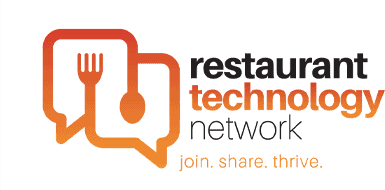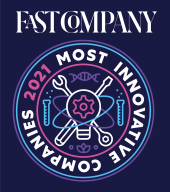It’s no secret that the restaurant industry has been hit incredibly hard by the global COVID-19 pandemic. In December, Bloomberg reported that “more than 110,000 restaurants have closed permanently or long-term across the country” due to the pandemic. But unlike other businesses that saw help from Economic Injury Disaster Loans (EIDL) and Paycheck Protection Program (PPP), many restaurateurs said these lifelines weren’t enough or came with too many restrictions to make them work within the F&B industry.
As Luca Di Pietro, owner of the Tarallucci e Vino restaurant group, told CNBC last month, “I have no way to use the PPP,” he says, because Di Pietro only has about 12 employees left. “Yes, I could bring people back in, but we’re closed. I don’t want them to travel and put themselves at any risk if this is the situation.”
He said the only thing that might staunch the bleeding would be a stimulus package designed specifically for restaurants that would “help not only pay salaries but pay our vendors and rent.”
The Biden administration might just roll out this solution: The HEROES Act—short for the Health and Economic Recovery Omnibus Emergency Solutions Act—was passed by the House in May but failed in the Senate. The House passed an updated HEROES Act in early November, but it didn’t pass in the Senate.
The goal of the stimulus, the House said, was to provide: “Strong support for small businesses, by improving the Paycheck Protection Program to serve the smallest businesses and struggling nonprofits, providing hard-hit businesses with second loans, and delivering targeted assistance for the struggling restaurant industry and independent live venue operators.”
A real-life vest for restaurants, President Biden has stated that he would pass the HEROES Act, which would be a massive win for F&B given its $2.2 trillion proposals of stimulus money that would come with $120 billion in grants for restaurants, bars, and food trucks, according to Eater.
But there’s one caveat: the program would exclude chain restaurants, including franchises.
Franchises and Chains Left Out
While the Independent Restaurant Coalition sees this bill as a first step to boosting the struggling industry, The National Restaurant Association, as reported by Nation’s Restaurant News, says it falls short. Speaking to the publication, NRA Executive Vice President of Public Affairs Sean Kennedy said the failure is in the Act’s denial of federal support for small regional chain restaurants and small franchise owners.
This includes even small franchises with just a few units, such as the franchise operator of two or three Taco Bell stores. This is because “Taco Bell has 6,000 units, well over the under the 20-unit threshold,” Nation’s Restaurant News explains.
That said, those franchise owners can apply for the second round of PPP loans, which opened Monday, January 11. Called PPP2, this next batch of loans provides $284 billion, according to Forbes.
To qualify for this government aid, a restaurant must show that it had a 25 percent decrease in revenue. And even if a restaurant got PPP in the first round, they’re still eligible to apply for a second loan. In response to restaurants’ needs, PPP2 also allows greater flexibility for the use of the money. That means that restaurants can apply 40 percent of it to expenses, including:
- Mortgage or rent payments
- Utilities
- Personal protective equipment
- Property damage
- Cloud computing
- Supplier costs.
What’s Next?
Whether or not the HEROES Act comes to pass remains to be seen. For now, restaurants are left holding their breath, and chains and franchises must look for other alternatives.
This is why so many are upending their traditional means of service for new options that help them stay in business. This has meant a switch to digital and off-premise solutions for many small businesses, and one company helping restaurants cope is OneDine.
The online food ordering system gives guests the option of mobile menu browsing, ordering, and payingfrom the safety of their own homes (or wherever they are!). And to personalize the experience, customers can mark their favorite menu items to make scrolling and ordering easier. This contactless solution also accommodates health and safety protocols as OneDine allows customers to text-to-pay or scan-to-pay using a QR code. No need for unnecessary contact, or to download an app.
Convenient and easy to use for any size restaurant, OneDine is especially helpful for those franchise owners and chains trying to stay afloat without the help of government intervention. Without additional economic stimulus, turning to resources like OneDine might be the solution these businesses need to make it through the pandemic and to keep customers coming back for more.





